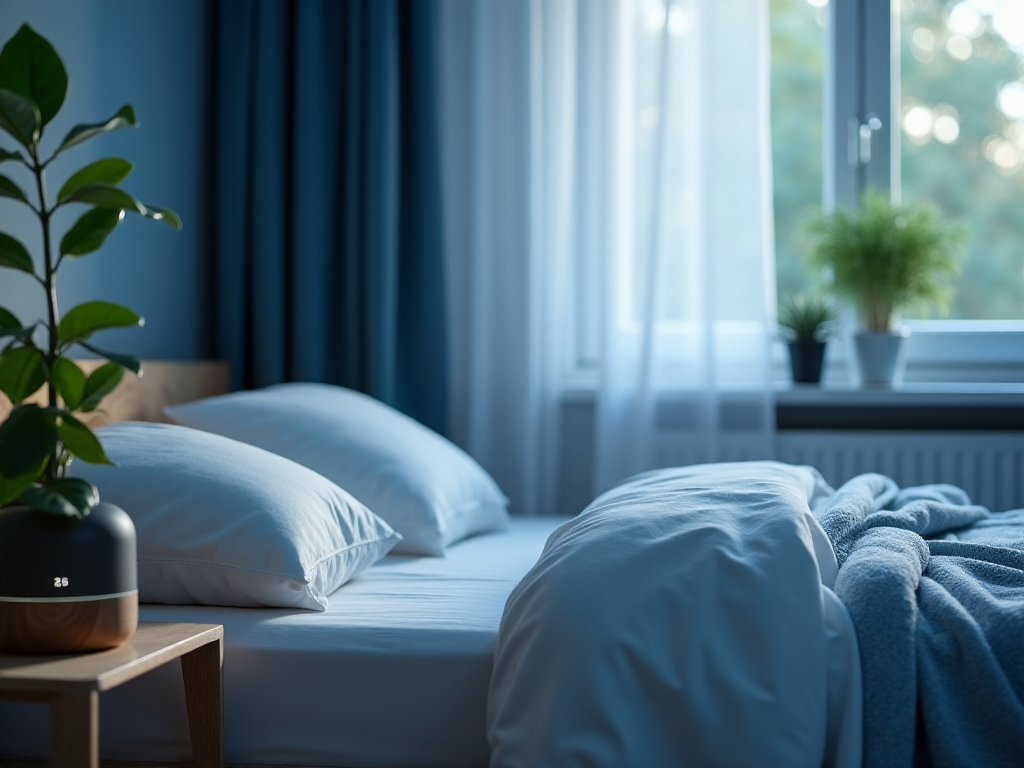Opening Chat
Hey, have you been feeling tired and low on energy lately? Or noticed your weight creeping up? Many people face these challenges. In our fast-paced urban life, we often neglect our health. As a blogger who frequently researches healthy lifestyles, I see many young people developing various sub-health conditions due to work pressure and fast-paced living. Some feel constantly weak, others suffer from insomnia, and some have irregular eating habits. If these issues aren't addressed promptly, they can accumulate and significantly burden our health. Today, I'd like to share some practical tips to help you regain your healthy and energetic state.
Diet Revolution
When it comes to health, diet is fundamental. But did you know? Many people have huge misconceptions about "healthy eating." Some think it means being vegetarian, while others believe just eating less is enough. These views are incomplete. A healthy diet should be nutritionally balanced and moderate.
Let me share an interesting statistic: According to nutritional research, we need at least five servings of fruits and vegetables daily. What does this mean? One serving of fruit is about the size of an apple, and one serving of vegetables is about a bowl of salad. However, surveys show that over 80% of young people don't meet this standard. Many people rush through breakfast, eat fast food for lunch, and have irregular dinners due to social obligations or overtime work. Such dietary habits are very harmful to health in the long run.
Nutrition experts recommend following the "three more, three less" principle in our daily diet: more whole grains, more fruits and vegetables, more water; less greasy food, less sweets, less sugary drinks. Specifically, daily grain intake should be between 250-400 grams, with ideally 1/3 being whole grains; protein intake should be between 120-200 grams, which can be supplemented through fish, poultry, eggs, and soy products; vegetable intake should be between 300-500 grams, preferably choosing vegetables of different colors as they contain different nutrients; fruit intake should be between 200-350 grams, preferably seasonal fruits.
My suggestion is: Have a fruit salad for breakfast, an apple for lunch, and some broccoli with dinner - you'll reach the target without even realizing it. Remember, nutritional balance isn't simply about eating less, but about proper combinations. Breakfast can be whole wheat bread with milk and fruit, providing carbohydrates, protein, and vitamins; lunch can include brown rice with lean meat and two servings of vegetables for balanced nutrition; dinner can feature easily digestible foods like fish with vegetables to avoid overburdening the digestive system.
Another important principle in diet is regular timing and portions. We should develop the habit of eating at fixed times to help our bodies establish good physiological rhythms. Portions should also be moderate - don't wolf down food when overly hungry, and don't over-restrict for weight loss. Experts recommend chewing slowly and savoring food, which aids digestion and helps us feel full, preventing overeating.
The Art of Hydration
Speaking of which, we must address the topic of water consumption. Did you know? Water makes up 70% of our body, yet many people drink less than half the recommended amount daily. Water is as important to our body as oil is to a car - it helps maintain normal metabolism, regulate body temperature, transport nutrients, and eliminate waste.
Experts recommend that adults should drink between 1500-2000ml of water daily. While this might seem like a lot, it's actually not difficult to achieve with good hydration habits. Drinking warm water after waking up can help kickstart metabolism; proper hydration before and after exercise prevents dehydration; and remember to drink water regularly during work to maintain fluid balance.
Here's a tip: Get a 1000ml water bottle, finish one in the morning, another in the afternoon, and one more in the evening - you'll easily reach the recommended daily water intake. Drinking water can also help control weight, as we often mistake thirst for hunger. Research shows that drinking water half an hour before meals can help reduce food intake and aid in weight control.
When choosing beverages, plain water should be primary, with some light tea acceptable, but avoid sugary drinks. Many beverages contain high amounts of sugar, which can lead to weight gain and increase diabetes risk if consumed regularly. If plain water seems bland, try adding a slice of lemon or some mint leaves - this adds flavor while providing vitamins.
Note that while hydration is important, timing matters. Avoid drinking too much water an hour before bed to prevent sleep disruption; during exercise, take small, frequent sips rather than large amounts at once; and don't drink too much water during meals to avoid diluting stomach acids and affecting digestion.

New Thinking About Exercise
When it comes to weight control, many people's first thought is "I need to start running." But did you know? Scientific research shows that 150 minutes of moderate-intensity exercise per week can bring significant health benefits. What does this mean? You only need to walk briskly for 30 minutes daily to meet this standard. Exercise doesn't have to be intense - consistency is key.
Modern sports medicine research shows that moderate exercise can improve cardiopulmonary function, enhance immunity, improve blood circulation, promote metabolism, and help maintain good mental health. However, exercise must be approached scientifically. First, we should choose suitable exercises based on our physical condition. If you rarely exercise, suddenly starting intense workouts might be counterproductive. Start with simple exercises like walking, swimming, or yoga, and gradually increase intensity as your body adapts.
Timing of exercise is also important. Morning exercise can boost energy levels for the day, but proper warm-up is essential to avoid injury. Evening exercise can help release work stress, but avoid exercising too close to bedtime to prevent sleep disruption. Regardless of when you exercise, ensure adequate warm-up before and proper relaxation and stretching afterward.
This is how I practice: 15-minute walks during lunch break and after work. After a month, I noticed significantly more energy and better sleep quality. Besides scheduled exercise times, we can increase physical activity in daily life. For instance, choose walking or cycling to work, take stairs instead of elevators, and move around every hour during work - these are all good forms of exercise.
Choosing exercise equipment is also important. Proper athletic shoes can effectively prevent sports injuries; comfortable workout clothes make exercise more pleasant; fitness bands or watches can help monitor exercise intensity and volume. However, don't obsess over expensive equipment - developing regular exercise habits is what matters.
During exercise, learn to listen to your body. If you feel unwell, adjust intensity or stop exercising. If you experience persistent joint pain or discomfort after exercise, seek medical attention promptly. Remember, the purpose of exercise is to strengthen the body, not harm it.

Sleep Revolution
Regarding sleep, I must say it's one of the most neglected health elements in modern life. According to latest sleep research, adults need 7-9 hours of sleep daily, but what's the reality? Surveys show over 60% of young people sleep less than 6 hours. Long-term sleep deprivation can lead to decreased attention, reduced memory, lowered immunity, and increased risk of cardiovascular disease and diabetes.
To improve sleep quality, first create a good sleep environment. Bedroom temperature should be maintained between 18-22 degrees Celsius, with humidity between 40%-60%. Choose suitable mattresses and pillows - neither too soft nor too hard. Keep the bedroom quiet and dark, using blackout curtains to block external light. If environmental noise is high, use earplugs or white noise to aid sleep.
Second, establish good bedtime habits. Avoid using phones, computers, and other electronic devices 1-2 hours before bed, as their blue light suppresses melatonin secretion, affecting sleep. Engage in relaxing activities before bed, like reading, listening to soft music, or doing relaxation exercises. Avoid intense exercise or heavy meals before bedtime, as these can affect falling asleep.
I recommend setting fixed sleep and wake times. For example, go to bed at 11 PM and wake up at 7 AM. It might be difficult at first, but after a week, you'll find your body naturally adapts to this rhythm. Try to maintain similar sleep schedules on weekends - don't sleep too late or wake up too late, as this disrupts your body's biological rhythm.
If you can't fall asleep at night, don't force it - this will only make you more alert. Get up and do some light activities until you feel sleepy. Don't keep checking the time, as this increases psychological pressure. If you frequently experience insomnia, keep a sleep diary to identify factors affecting your sleep and improve them specifically.
Napping is another topic many people care about. Appropriate naps can help restore energy and improve afternoon work efficiency. However, naps should be limited to 20-30 minutes - longer naps can make you feel tired. The best time for napping is half an hour to an hour after lunch, when the body's biological rhythm is at its low point.

Nutritional Supplements
At this point, some might ask: Is diet and exercise enough? Should I take supplements? This question is worth discussing. While nutritional supplements are increasingly common in modern life, not everyone needs them.
According to nutritional research, most people don't need additional supplements with a balanced diet. However, if you're vegetarian or get limited sun exposure, you might need vitamin B12 or vitamin D supplements. How to supplement should be based on physical examination results. Blindly taking supplements can waste money and burden your body.
If supplements are necessary, choose products from reputable manufacturers and check expiration dates and ingredient lists. Follow dosage instructions - more isn't better. Excessive intake of certain nutrients can harm the body.
Special populations may need particular attention to supplementation. For instance, pregnant women need folic acid and iron; elderly people might need calcium; frequent exercisers might need protein and electrolytes. But consult a doctor about specific supplement needs.
Many "trending" supplements now claim various miraculous effects, but many lack scientific basis. We should view supplements rationally and not be misled by exaggerated advertising. True health comes from daily diet and lifestyle, not supplements.

Health Monitoring
Speaking of check-ups, many young people often overlook this. But did you know? Many chronic diseases show no obvious symptoms in early stages. Regular check-ups can detect health issues early and help you better understand your physical condition.
It's recommended to have a comprehensive physical examination at least annually. Choose examination items based on age, gender, family history, and other factors. Besides routine items like blood tests, urinalysis, liver function, and kidney function tests, add specific checks based on individual circumstances. For instance, those with family history of hypertension should monitor blood pressure closely; those with family history of diabetes should watch blood sugar levels.
Simple health monitoring can be done in daily life. Regular weight and blood pressure measurements, tracking exercise and sleep quality, etc. Many smart devices can help monitor these health indicators, but remember their data is for reference only - seek medical attention if abnormalities are found.
Mental health also needs monitoring. If you experience persistent low mood, anxiety, insomnia, etc., seek help from a counselor promptly. Mental and physical health are inseparable - true health requires maintaining both well.

Conclusion
Living healthily sounds simple but requires some willpower. However, once these suggestions become habits, you'll find it's not difficult. What are your thoughts? Feel free to share your healthy living experiences in the comments.
Remember, health isn't achieved overnight but requires consistent effort over time. Let's work together to create our own healthy lifestyle. A healthy lifestyle not only maintains good physical condition but helps us better face life's various challenges. I hope everyone can find their most suitable healthy lifestyle and live a healthy, happy life.







